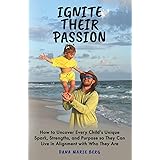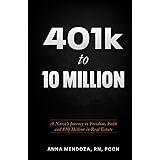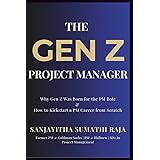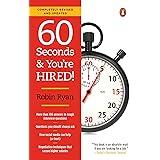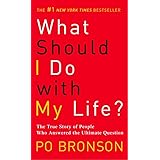The quest for a truly satisfying profession, one that transcends mere obligation and sparks genuine enthusiasm, remains a profound challenge for many. The accompanying video by Dr. K sheds light on a pervasive issue: individuals often report feeling perpetually bored or disengaged with their work, a sentiment underscored by experiences such as switching college majors up to eight times without satisfaction, or enduring what are described as “soul-crushing” jobs for a decade. This widespread struggle for career fulfillment frequently leaves people feeling directionless, unable to pinpoint a path that resonates with their inner aspirations.
The Trap of Conventional Career Thinking
Many individuals find themselves caught in a cycle where career choices are not deeply considered but rather passively accepted. It is often observed that decision-making regarding professional pathways is heavily influenced by immediate surroundings, leading to what is metaphorically described as a “monkey see, monkey do” approach. For instance, the child of two doctors might naturally gravitate towards pre-med studies, not necessarily due to an inherent passion for medicine, but because it represents an available and familiar trajectory.
Such a narrow perspective on career options frequently results in what is known as “premature closure.” This psychological phenomenon occurs when the mind latches onto the first few obvious solutions or ideas, subsequently overlooking a multitude of other, potentially more suitable, possibilities. Consequently, rather than exploring a broad spectrum of choices, individuals are seen to confine their thinking to common, readily accessible jobs—such as call center roles, billing departments, or food service—even if these fields have previously proven unfulfilling and stagnant.
This tendency to limit consideration to the most apparent options can be a significant barrier to finding a job one genuinely cares about. The danger lies in allowing existing biases and perceived limitations to dictate future paths, thereby preventing a comprehensive exploration of one’s true potential and interests.
Beyond the “Career” Mindset: Embracing a Differential Approach
To break free from the constraints of conventional thinking, a fundamental shift in perspective is often needed. Instead of focusing solely on the concept of a “career,” which can itself be a form of premature closure, it is suggested that a step back be taken. Dr. K proposes an adaptation of the “differential diagnosis” method, typically employed in medicine, where doctors systematically consider all possible conditions before settling on a definitive diagnosis. Applied to career exploration, this involves brainstorming the widest possible array of ways one could meaningfully spend their time, irrespective of current qualifications or societal norms.
This method encourages an expansive thought process, moving beyond predefined job titles to inquire about what genuinely excites and intellectually engages an individual. For example, the notion of a “professional Dungeon Master” might seem unconventional, yet in specific niches, such roles not only exist but can also command significant compensation. Reports indicate that professional DMs in cities like New York City might charge upwards of $400 per week for their services, demonstrating that viable economic models can emerge from unexpected passions when a clear demand is met with dedicated supply.
Therefore, a comprehensive “differential diagnosis” in career planning would entail:
- Identifying genuine interests, hobbies, and activities that bring joy or intellectual stimulation.
- Exploring how these interests might potentially intersect with market needs, even in niche areas.
- Challenging preconceived notions about what constitutes a “real job” or a “livable wage.”
The Untapped Power of a Competing Interest
When faced with the arduous journey of skill acquisition or overcoming challenges inherent in any new endeavor, sheer logic or external pressure often falls short as a motivator. This observation is paralleled in addiction psychiatry, where information alone—such as the health risks of smoking—is rarely sufficient to instigate behavioral change. What proves effective, however, is the establishment of a “competing interest.” This is a deeply held value or passion that provides a powerful incentive, strong enough to override immediate gratification or discomfort.
For instance, a patient struggling with smoking might be unable to quit despite knowing the risks of lung cancer and heart disease. However, when the conversation shifts to their desire to walk their daughter down the aisle without being tethered to an oxygen tank, a profound motivation emerges. This compelling vision, this competing interest, becomes the driving force that allows them to endure the difficulties of quitting, ultimately leading to success over a period of six to eight months.
Similarly, in the pursuit of a fulfilling career, the existence of a competing interest can transform what might otherwise be perceived as unbearable hardships into tolerable steps towards a larger goal. Tasks that are not inherently enjoyable, such as taking statistics or introductory chemistry courses, become manageable when they are clearly seen as necessary components of a journey towards a deeply desired outcome. Aligning one’s career behind passions, rather than attempting to fit passions into a predefined career, imbues the entire educational and professional trajectory with purpose and resilience.
Uncovering and Rekindling Your Buried Passions
A common predicament arises when individuals assert they have “lost interest in everything” or that “everything in life is boring.” This sentiment, as Dr. K points out, often suggests that passions are not truly lost but rather buried under layers of stress, disconnection, or even biological factors. Personal experiences, such as enduring a period of anhedonia during illness, illustrate how external circumstances can temporarily obscure one’s capacity for joy and engagement.
The process of rediscovering these buried interests involves a multi-faceted approach:
- Introspection and Reflection: Revisit past experiences. When was the last time genuine fun was experienced, or when was intellectual curiosity truly ignited? What problems in the world stir a desire for impact?
- Challenging Premature Closures: When a thought like, “I can’t do that because I have no qualifications,” arises, it should be recognized as a signal. This negative statement often points directly to the steps that need to be taken—e.g., if qualifications are lacking, acquiring them becomes the next logical action.
- Addressing Biological and Physical Well-being: Physical health profoundly influences mental state and motivation. Simple yet impactful actions like regular exercise, mindful eating, adequate sleep, yoga, or meditation can significantly contribute to improved mood and a resurgence of interest. Medical check-ups, including assessments for vitamin deficiencies (e.g., Vitamin D) or other biological factors contributing to low motivation, are also critical.
Charting Your Course: Actionable Steps for a Fulfilling Career
Navigating the path toward a career that genuinely excites and sustains can be systematically approached. It is a journey that prioritizes internal drive over external pressures, fostering a deep sense of purpose and commitment. This process involves a sequence of deliberate actions:
1. Step Back and Broaden Your Horizon
Initially, it is recommended that one consciously disengages from the limiting idea of a “career.” Instead, focus should be placed on identifying core values, genuine interests, and specific problems in the world that evoke a desire for impact. This foundational step is about asking, “What do I truly care about?” rather than “What job can I get?”
2. Investigate and Ideate Unconventional Paths
Once core interests are identified, an investigative phase begins. This involves exploring how these passions could potentially translate into a means of livelihood, even if the connections are not immediately obvious. The world is full of niche opportunities, many of which are not widely recognized as conventional careers. This is where unorthodox ideas, like becoming a professional Dungeon Master or a mental health streamer, are considered and researched for their viability and potential for compensation.
3. Cultivate a Competing Interest for Resilience
As possibilities emerge, a powerful “competing interest” must be cultivated. This is the overarching purpose or deep desire that provides the necessary motivation to overcome obstacles and endure the less enjoyable aspects of skill development or career progression. When educational pursuits or job responsibilities are viewed through the lens of this larger, cherished goal, the perceived suffering associated with difficult tasks significantly diminishes.
4. Align Actions with Passion
Finally, a strategic alignment of actions behind these passions is essential. This means consciously choosing educational paths, skill development opportunities, and even entry-level jobs that serve as stepping stones towards the identified passion. For instance, if supporting equal rights in developing countries is a passion, pursuing a college degree in international relations or social justice becomes a purposeful act, even if some coursework is challenging. The narrative of one’s application or resume then reflects a clear, internally driven vision, making an individual a compelling and unique candidate.
In essence, the journey to finding a fulfilling career is not about passively waiting for inspiration to strike, but rather actively engaging in a process of self-discovery, strategic investigation, and purposeful action. By consistently asking, “What am I attracted to? What do I gravitate towards? What do I genuinely enjoy doing?” and then systematically addressing the obstacles that arise, individuals can forge a professional path that is both personally rewarding and economically viable.
Making Your Career Count: Q&A
What is ‘premature closure’ when thinking about a career?
Premature closure is when you limit your career choices to only a few obvious ideas, overlooking many other possibilities that might be a better fit for you. This often happens because people stick to familiar options instead of exploring broadly.
Why does the article suggest not just focusing on a ‘career’?
The article suggests stepping back from the term ‘career’ because it can limit your thinking to conventional jobs. Instead, it encourages exploring a wider range of ways you could spend your time meaningfully, beyond traditional job titles.
What is the ‘differential approach’ for finding a fulfilling job?
The differential approach means brainstorming the widest possible range of ways you could meaningfully spend your time, similar to how doctors consider all possible conditions. This helps you discover unconventional paths that align with your genuine interests.
What is a ‘competing interest’ and how does it help in career planning?
A competing interest is a deeply held value or passion that provides a powerful motivation to overcome challenges and discomfort. It helps you endure difficult tasks by reminding you of a larger, cherished goal you are working towards.
How can I find my passions if I feel like everything is boring?
Your passions might be buried under stress or other factors, not truly lost. You can rediscover them through introspection about past joys, challenging limiting beliefs, and improving your physical and mental well-being.


